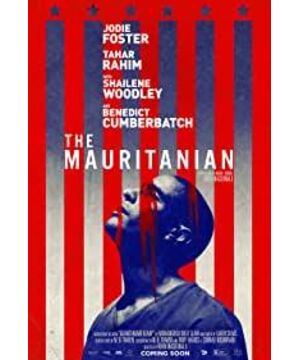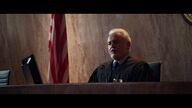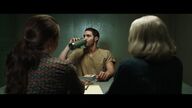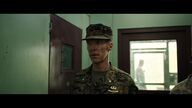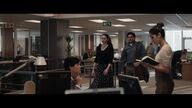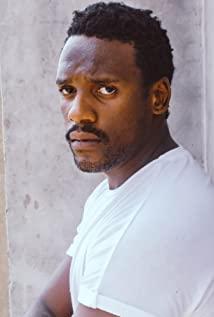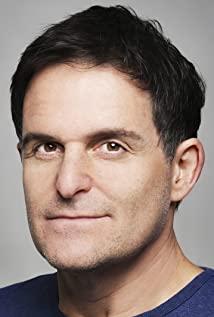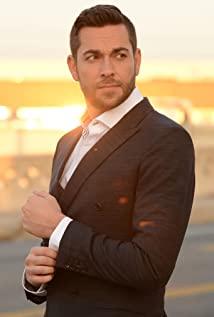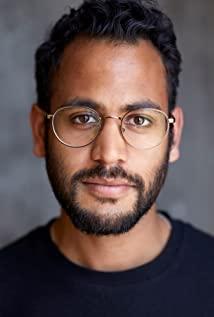Individuals are more interested in such topics. "Anti-Terrorism Suspicion" reflects the expansion and abuse of the power of the US counter-terrorism agency after 9/11, and the "Torture Report" reflects the use of torture (enhanced interrogation techniques) in the US anti-terrorism struggle. But after watching the film, my doubts increased, and I even began to consider the rationality and necessity of the Guantanamo prison.
1. Is Slashi guilty?
The source of the film story is a self-reported book by Slashi, whose main content is the letters he wrote in Guantanamo. In essence, this is actually a family statement. If it is determined that the CIA and the U.S. military are extracting confessions by torture, on what basis can it be assumed that Slashi is telling the truth?
The film shows some basic facts: Mauritanian poor boy Slahi went to Germany to study electrical engineering with a full prize, and stayed in Germany. He joined al-Qaeda, he participated in al-Qaeda training camp training, he donated money to terrorists, one of his cousins is bin Laden's close friend, he received a phone call from his cousin bin Laden, he has seen hit the WTO Terrorist in the building. These facts are enough for the CIA to keep an eye on him because he is suspected of being a big fish. Although his statement was that he was very innocent and he was defeated, no one can prove that he did not recruit the terrorists who hit the World Trade Center. Is he really as innocent as a little white rabbit?
2. The film is essentially eulogizing the political correctness of the United States
The world is eager to have a fair legal environment, because only in this way can everyone be protected. In terms of personal settings, the prosecution lawyer is a natural and just military lawyer. When he discovered that Guantanamo was suspected of extracting a confession, he immediately withdrew from the prosecution. The defense lawyer is an experienced virgin of human rights, unswervingly defending Slashi. From a procedural point of view, the method of obtaining evidence is illegal, all evidence is invalid, and the charges are naturally unfounded. Through Slashi's self-report after his release, the film eulogized the fairness of American law in a disguised form. But the personal problem has also come: to safeguard the dignity and justice of the law, in addition to the justice of the procedure, there should be justice to restore the truth, right?
In the film, the prosecution military lawyers quickly abandon the prosecution, and the defense lawyers contacted Slahi’s family, wrote letters, and sensationalized, and then firmly fought side by side with Slahi. The CIA, the military, and the prison are all pig-headed. Existence, except for torture and intimidation of Slashi to capture his mother, nothing else. Everyone doesn’t care whether Slashi recruited terrorists who hit the World Trade Center. These are too trifling, right?
After 9/11, the United States designated Al Qaeda as a terrorist organization and its number one target. Can Slashi be as innocent as an angel? There is no evidence of his activities in Germany at all? Except for torture to extract confessions, does the United States have no legal and professional case-handling techniques and methods? Slashi didn't tell the truth for eight years, only that he was very strict.
Especially Slashi's personal statement to the judge at the end, a very high level and very naive confession, which was a bit too sensational. Just because of this confession, I think Slashi is not easy!
3. About anti-terrorism
Extreme terrorist organizations all over the world have a set of extreme ideas and theories. Members are either brainwashed or voluntarily joined. In short, they are a special group of people with extremely firm beliefs and different words and deeds from ordinary people. For the backbone of them, the way they treat ordinary people is hard to work. Knowing and moving with reason and affection are basically jokes, so how should we deal with it?
There is a classic line in the "Torture Report" that roughly means: terrorists are like beasts, and if we are fighting terrorism like beasts, how is it different from them?
This sentence is indeed very politically correct, but how to use it in practice is still a problem that plagues the world.
In short, I personally feel that the adaptation is very unsuccessful!
View more about The Mauritanian reviews


